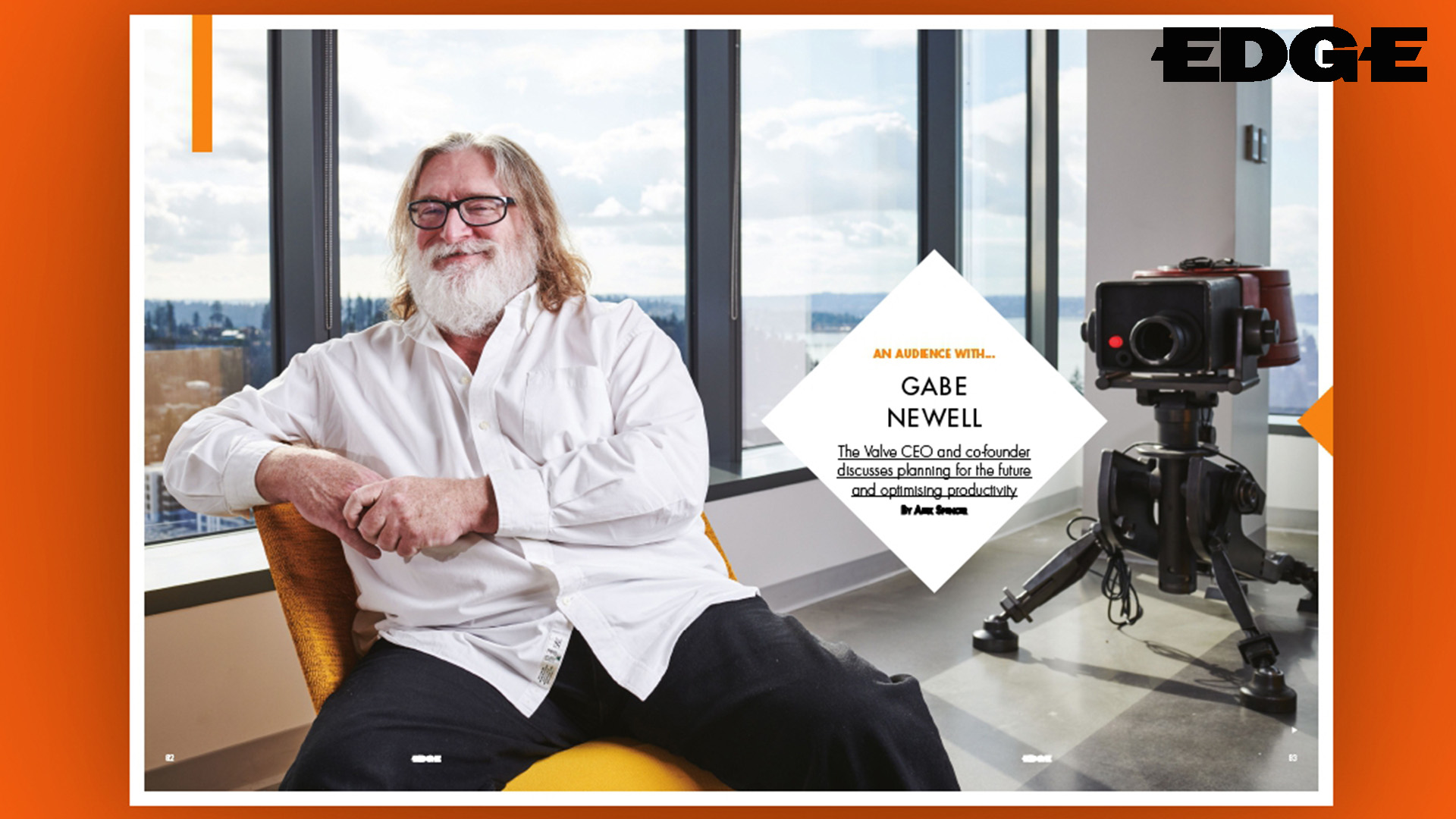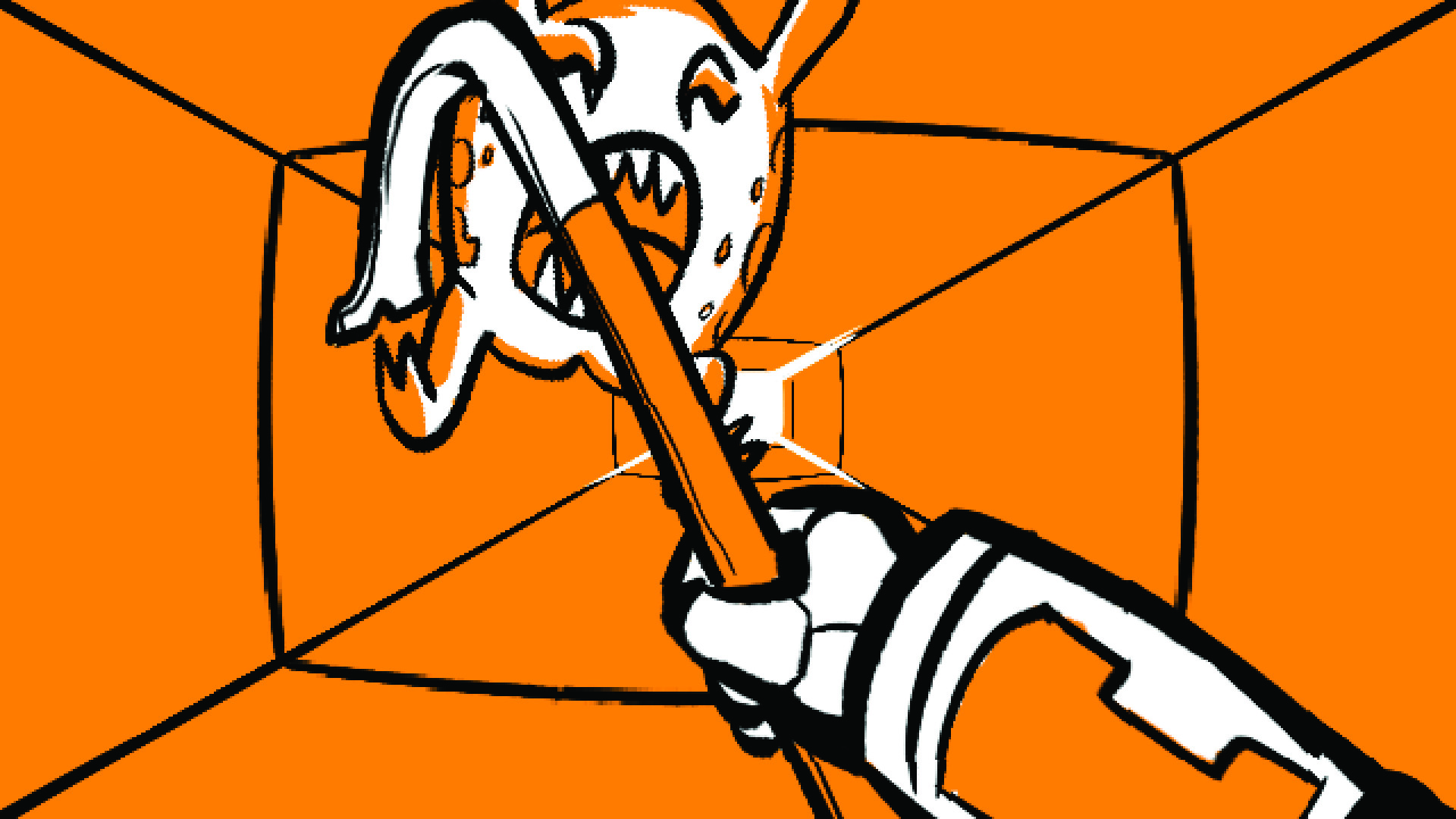Is Valve making Half-Life 3? Gabe Newell hints at the future of single-player games in Edge magazine
Developments in AI have Valve boss predicting a “tectonic shift in the industry” within next five years, reveals an exclusive interview in the new issue of Edge Magazine

Valve may be finally about to release its first Half-Life game in almost 13 years, but even with Half-Life: Alyx mere days from launch, there’s still a big, awkward elephant in the room. What’s going on with Half-Life 3? In its new issue, Edge magazine visits Valve’s Bellevue HQ and gets a few precious hints at the future of one of gaming’s greatest, and most coveted, series. While Valve boss Gabe Newell is as elusive as you’d expect on Half-Life specifically, one thing is clear: Alyx is no one-off. Single-player games are still very much part of the studio’s plans.
- You can pre-order your copy of Edge Magazine's exclusive interview with Gabe Newell for delivery to your door. Hurry, while stocks last.
Since Half-Life 2: Episode Two released in 2007, Valve has, to put it mildly, diversified. It runs the world’s dominant PC game store, Steam; it has made Index, a proprietary VR headset. And in game-development terms it has seemingly turned away from the single-player first person shooters that made it so famous, with colossally successful multiplayer games such as Dota 2, Counter-Strike: Global Offensive, and most recently, Dota Underlords.
Now, while understandably declining to address Half-Life specifically (as Valve’s Greg Coomer says, “We’re not trying to put a stake in the ground that’s way down the road for the future of Half-Life. We’re purposely not letting ourselves do that”), Valve has sketched out a tantalising future for single-player games, driven by advancements in artificial intelligence.
“People have seen us sort of step away from immersive single-player experiences for a while,” acknowledges Valve CEO and co-founder Gabe Newell in Edge’s interview, “and a lot of that was that we saw more tractable opportunities elsewhere. I mean, a typical gaming company would just keep cranking out sequel after sequel – but the reason people value Valve is that we’re supposed to be the ones picking interesting problems and solving them.”

Newell refers to the OpenAI bots that have been trained to play Dota 2 to such a standard that they can beat almost every Dota-playing human on the planet. “That’s actually a surprisingly narrow challenge for artificial intelligence,” Newell says. ”Beating humans is easier than entertaining humans. But over the next several years – and if you ask me, my little spreadsheet calculation is it’s about nine years – we’ll have artificial general intelligence that can do anything a smart person can do.
“It’ll probably initially take something like a billion dollars to build one of these silicon humans, but then they’ll just keep getting cheaper, and it’ll get cheaper really quickly, and eventually reach the point where you have ten or a hundred people living in your computer all the time. Harnessing that will mean single-player games get a lot more interesting.”
The theory is, essentially, that AI could mean that the single-player games of the future will grow and evolve in a way that, currently, is only possible in games populated by big numbers of humans – MMOs, battle royales, games-as-services and so on. Later in the interview, Newell airily speculates on just what these massive developments in AI could bring.
Sign up to the GamesRadar+ Newsletter
Weekly digests, tales from the communities you love, and more
“If you could build a single-player game that just never ended, where I could play 20 hours a week and it just keeps growing and getting richer, and I’d be having as much fun 400 hours into this experience as I was in the first 20 hours… I think that is a way more likely scenario looking forward five years than it would have been looking forward five years ago. That’s going to be a tectonic shift in the industry.”

When a former Half-Life writer leaked his vision for how Half-Life 3 might conclude under the codename Epistle 3, indie developers took it upon themselves to complete Valve's story.
Newell speaks to Edge as part of a wide-ranging report on one of the most successful, fascinating, and secretive game companies on the planet in its new issue, Edge 344. With a photographer in tow and interviews with more than 20 staff, Edge examines every aspect of this most multifaceted of studios, investigating the past, present, and future of Valve’s hardware, platform and game teams. And, naturally, Edge also runs the rule over Half-Life: Alyx in its review section.
Edge 344 goes on sale in print on Thursday, March 26, and subscriber copies, with an exclusive cover design, will begin arriving in the coming days. We appreciate that many of you are stuck indoors at the moment, and may not be able to get to the shops; as such we’re taking a limited number of pre-orders for the print edition. You can also view our latest subscriber offers here.
We’re also preparing an early release for our digital edition on Monday 23rd March. Subscribe today and your first five issues cost a total of just £5 ($5/€5), guaranteeing instant access to Edge’s Valve special edition the minute it’s officially released.
Edge magazine was launched in 1993 with a mission to dig deep into the inner workings of the international videogame industry, quickly building a reputation for next-level analysis, features, interviews and reviews that holds fast nearly 30 years on.



